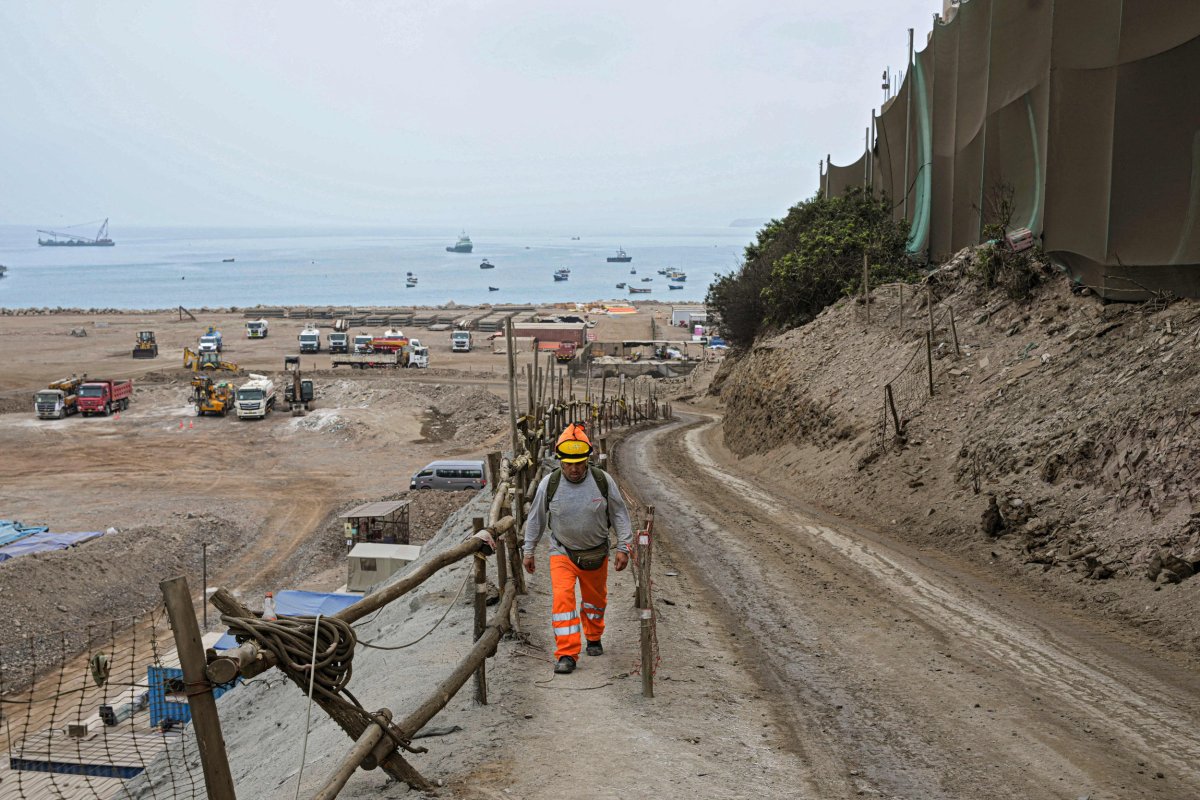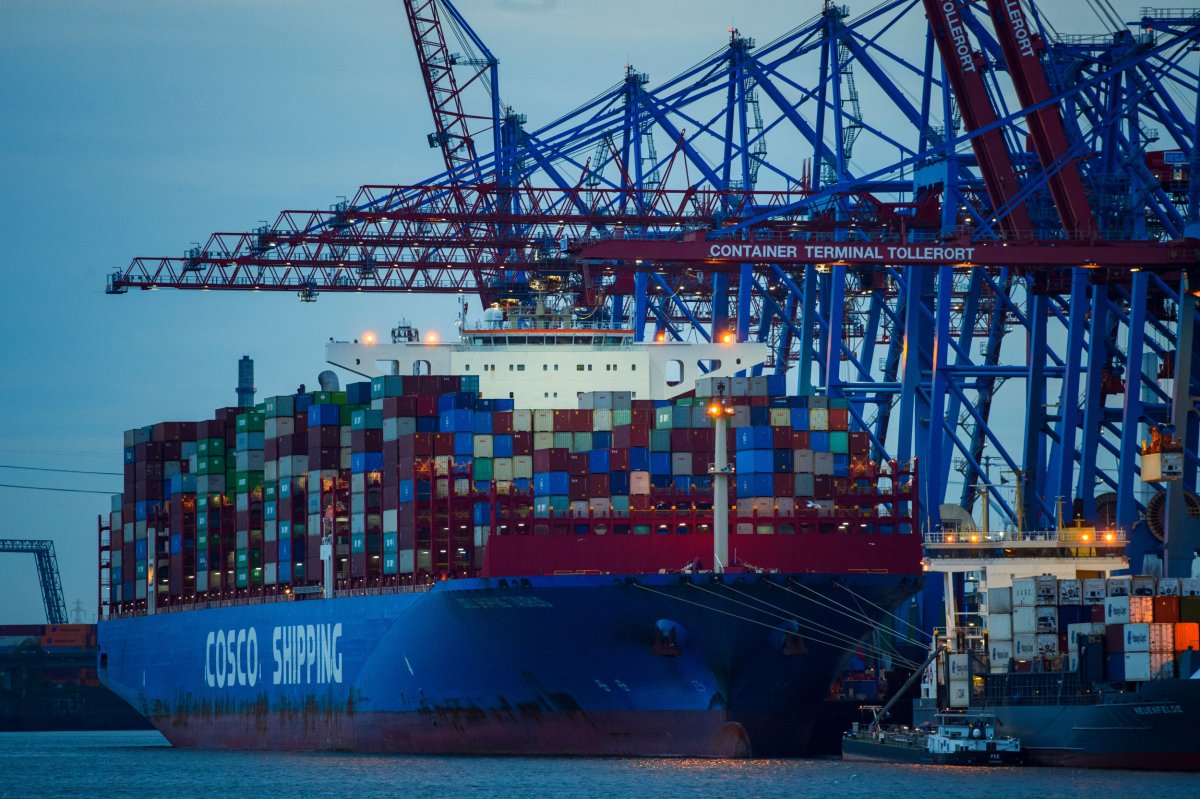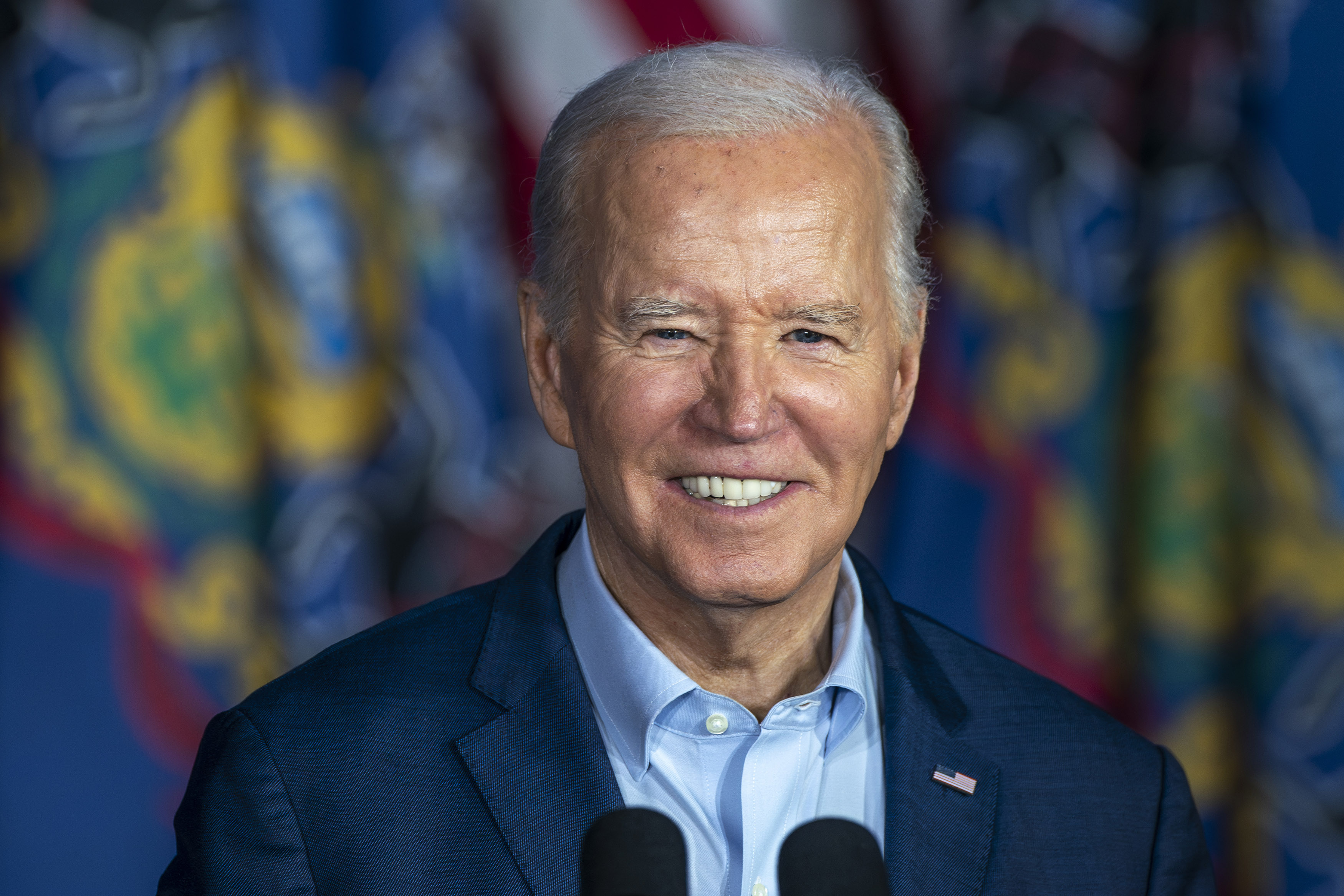The United States is worried about China's growing geopolitical clout in Latin American and has pressed Peru to rethink major Chinese stakes in its critical infrastructure.
U.S. officials raised their unease directly with the Peruvian government, highlighting specific risks associated with acquisitions by Chinese state-owned companies of Lima's power grid and a mega port project on the country's Pacific coast, according to the Financial Times.
One U.S. official told the paper: "On the big geostrategic issues, the Peruvian government is not sufficiently focused on analyzing the benefits and threats to the country."
The magnitude of the problem—that is, China's inroads into the region—was captured in comments by Gen. Laura Richardson, head of U.S. Southern Command (SOUTHCOM), who told Newsweek in a recent interview: "They're on the 20-yard line, in the red zone to our homeland."
At the heart of America's disquiet is Peru's under-construction port at Chancay, roughly 48 miles north of capital Lima. A subsidiary of the Chinese conglomerate COSCO Shipping, whose stake in world ports was the subject of a Newsweek investigation last year, controls 60 percent, while Peruvian company Volcan owns the remaining 40 percent.
The port, slated for completion next year, is rated to accommodate the world's largest cargo ships. It is expected to attract container traffic from Ecuador to the north and Chile to the south, becoming the "regional hub" of the South Pacific, its owners say.

In the eyes of skeptics, however, the deal not only drives up COSCO's dominance of the industry, but also might offer a deep water, dual-use facility for future port calls by the Chinese navy.
COSCO already has a troubled history with the United States, where it owns stakes in Miami, Houston, Long Beach, Los Angeles and Seattle. The Trump administration sanctioned two of its subsidiaries for supplying oil to Iran, but the restrictions were later lifted to ease pressure on oil markets.
The Chinese company also controls key terminals Greece, Spain and Turkey.
"U.S. concerns are well-founded, as [People's Republic of China] infrastructure projects in the past have been found to be designed as dual civilian-military use, with the explicit intent of allowing warships to dock," said Christopher Hernandez-Roy, a senior fellow and deputy director of the Americas Program at the Center for Strategic and International Studies think tank in Washington, D.C.
"Having a Chinese state-owned company operate your port opens up a range of other vulnerabilities. In particular, port operators can gather intelligence on the types of ships and cargoes passing through. Port operators could even seize specific cargoes, or prevent docked ships from leaving, disrupting supply chains and global commerce," Hernandez-Roy told Newsweek.
"Given Chancay's expected size, and that it would connect Brazil, Chile, Colombia and Ecuador, it would have an outsized influence on cargoes in and out of a large part of South America," he said.
Beijing has long dismissed Washington's concerns about its commercial interests around the world as simple paranoia.
SOUTHCOM didn't return an emailed request for comment before publication.
On paper, Peru and China have maintained elevated diplomatic ties for a decade, although Lima only signed on to the Belt and Road Initiative—the centerpiece of President Xi Jinping's foreign policy—in 2019, the same year COSCO acquired its stake in Chancay.
Since 2013, Chinese companies have only gained further ground in Peru through joint ventures in its infrastructure. On the sidelines of the U.N. General Assembly in New York last month, Han Zheng, China's vice premier, met President Dina Boluarte of Peru to promote further BRI cooperation.
The makeover in Chancay promises to turn the port city into "Peru's Shanghai," Song Yang, the Chinese ambassador in Lima, said. Xi will inaugurate the facility's first phase—built to the tune of $3.6 billion—when he attends the APEC summit in Lima next year.
The BRI has 21 members from Latin American and the Caribbean.
"Peru realized many years ago that the fastest growing area in the world was and would be the Asia-Pacific. It thus joined APEC in 1997 and opened more embassies and trade offices in Asia. In the current century, Peru has been one of the fastest-growing countries in South America, partly as a result of this strategy," said Jorge Heine, a research professor at Boston University's Pardee School of Global Studies.
Today, China is today Peru's top trading partner and a leading foreign investor in mining. Lima also has kept good relations with the United States.
"There is no reason why the United States should object to Peru's flourishing economic ties with China. To do so would generate strong pushback," Heine told Newsweek.
Hernandez-Roy of CSIS said: "Peru is a reliable democratic U.S. ally. To the extent Peru has a long-term China strategy, it is likely mainly economic. Most likely, Peru is seeking to leverage trade with China to grow its economy and extract infrastructure investments like the port of Chancay to assist its development, but this does not necessarily mean Peru will seek to distance itself from the United States, its second-largest trading partner."

"China's footprint has by no means replaced the historic U.S. sphere of influence. What we do have is a much stronger presence of China in the region, especially in South America," added Heine, who was Chile's ambassador to China from 2014-2017.
"And given the longstanding historical ties between the U.S. and Latin America, the U.S. continues to exercise considerable political, cultural and military influence in the region. That said, countries are balancing their relations with Washington and Beijing, and applying what is known as Active Non-Alignment, putting their own interests first, and not letting themselves be pressured by the great powers to toe their line," Heine said.
Chinese investments in Latin America's infrastructure leave host countries vulnerable to Beijing's political influence, Rep. Mike Gallagher (R-WI), who chairs the House select committee on China's Communist Party, argued recently in Newsweek's opinion pages.
In Lima, two Chinese state-owned power companies control 100 percent of the Peruvian capital's electricity supply.
"Projects like Chancay go hand-in-hand with Chinese firms' takeover of local construction, shipping, and telecommunications," Gallagher wrote. "Latin America is central to the CCP's global campaign to monopolize strategic natural resources."
"We have a duty both to our national security and the people of Latin America to show up in the region and bring solutions, not just lectures," he said.
"The Western Hemisphere is a coalition of resilient democracies that champions shared values. China champions a different set of values, and strategic competition with the PRC is one of the central challenges that will define the 21st century," the U.S. State Department said in a statement to Newsweek.
"U.S. foreign policy does not ask our partners to choose between the United States and the PRC. We, however, offer a partnership that works in our interests and those of our partners," it said.
Peru's Foreign Ministry didn't return a written request for comment.
Update 10/6/23, 6:10 a.m.: This article was updated with additional comments.
Uncommon Knowledge
Newsweek is committed to challenging conventional wisdom and finding connections in the search for common ground.
Newsweek is committed to challenging conventional wisdom and finding connections in the search for common ground.
About the writer
Aadil Brar is a reporter for Newsweek based in Taipei, Taiwan. He covers international security, U.S.-China relations, and East Asian ... Read more
To read how Newsweek uses AI as a newsroom tool, Click here.






